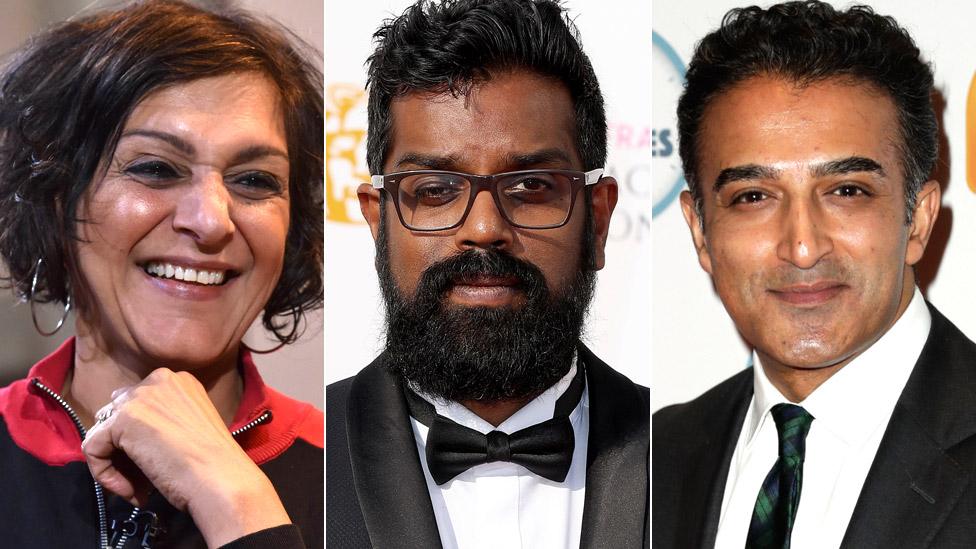Coronavirus: Black MPs unite in video to encourage vaccine take-up
- Published
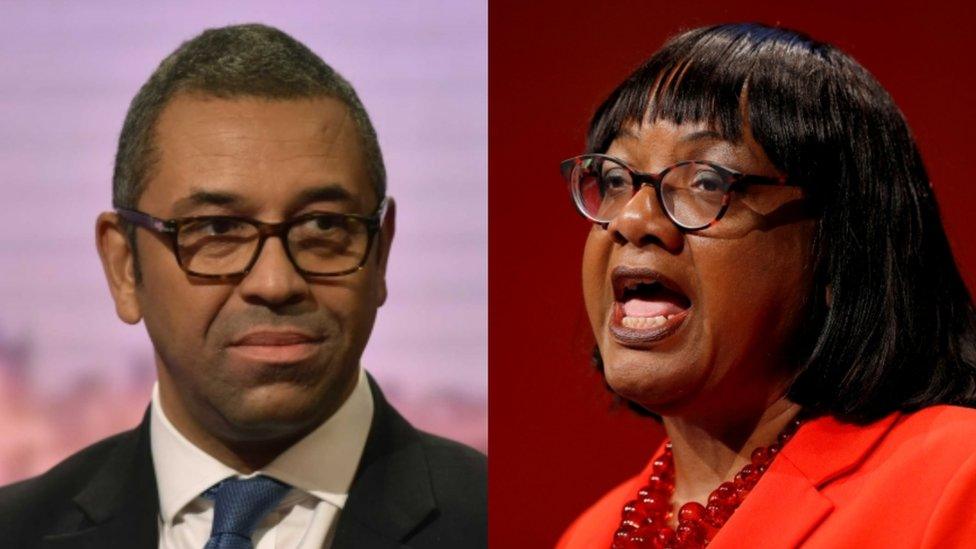
Conservative James Cleverly and Labour's Diane Abbott are among the MPs taking part
Black MPs from across the parties have joined together in a video encouraging people to get the coronavirus vaccine.
The Office for National Statistics has found all ethnic minority groups, other than Chinese, are more likely to die from the virus than white people.
But a study suggests black people over 80 are half as likely to get the vaccine.
Campaigners have urged the government to do more to encourage those who are reluctant to get the jab.
Jabeer Butt, chief executive of the Race Equality Foundation, says the government needs to get data on "who has been offered the vaccine, who has taken it up and use that to target messages".
The government says it is working closely with minority ethnic groups who have questions about vaccines including working with faith and community leaders.
In the clip, tweeted by Vaccines Minister Nadhim Zahawi, Labour MP David Lammy and Conservative James Cleverly speak about how they have lost relatives to the virus.
Allow X content?
This article contains content provided by X. We ask for your permission before anything is loaded, as they may be using cookies and other technologies. You may want to read X’s cookie policy, external and privacy policy, external before accepting. To view this content choose ‘accept and continue’.

Labour's former Shadow Home Secretary Diane Abbott says "MPs don't agree all the time" and her Labour colleague Dawn Butler adds "but on taking the vaccine we do".
Another Labour MP, Clive Lewis, says "We understand the genuine history of mistrust some black people will rightfully feel."
And Conservative MP Adam Afriyie says the vaccine has been "robustly tested by some of the world's best scientists".
The clip ends with the MPs pledging to take the vaccine when they are offered it.
'Lack of trust'
Conservative MP Bim Afolami, who took part in the video, told the BBC: "I will do anything I can to help increase the take-up of vaccines amongst black and other ethnic minority populations.
"As a son of a doctor and a pharmacist, I know the real stresses and strains that the NHS is under, and the fastest way we relieve that pressure, save lives, and get our economy and society back to normal, is for everybody to take the vaccine."
And Labour's shadow women and equalities minister Marsha de Cordova said "Black people are more likely to die from Covid-19 than white people, so it's really worrying that so many in the black community are reluctant to have the vaccine.
"We understand this lack of trust may stem from structural racism in our history, education and health services but we also know that the virus thrives on these racial inequalities, and the only way to stop it now is to have the vaccine."
Earlier this week British Asian celebrities - including comedian Romesh Ranganathan and cricketer Moeen Ali - made a similar video urging people to get the vaccine.
The OpenSafely study by the University of Oxford and the London School of Hygiene and Tropical Medicine found of the million of those over 80 but not living in a care home, 43% of the white people had been given their first dose, compared with 30% of the Bangladeshi and Pakistani people and 21% of the black people.
The study - which was based on more than 20 million patient records in England - also found that people living in deprived areas or those with mental-health conditions or learning disabilities were also less likely to receive the vaccination.
The authors of the study, which is yet to be peer-reviewed, said the findings of discrepancies between ethnic groups are "concerning".
"It requires action, and further investigation; possible drivers include systematic barriers to healthcare access, and vaccine hesitancy amongst certain groups; it may also only arise in the very earliest stages of this new vaccination programme," they said.
The BBC's community affairs correspondent Adina Campbell says there are many reasons why some are fearful including racial inequalities which already exist, a flurry of misinformation which appears to be targeting those groups on social media and a lack of trust toward those in public health care.
- Published12 November 2020
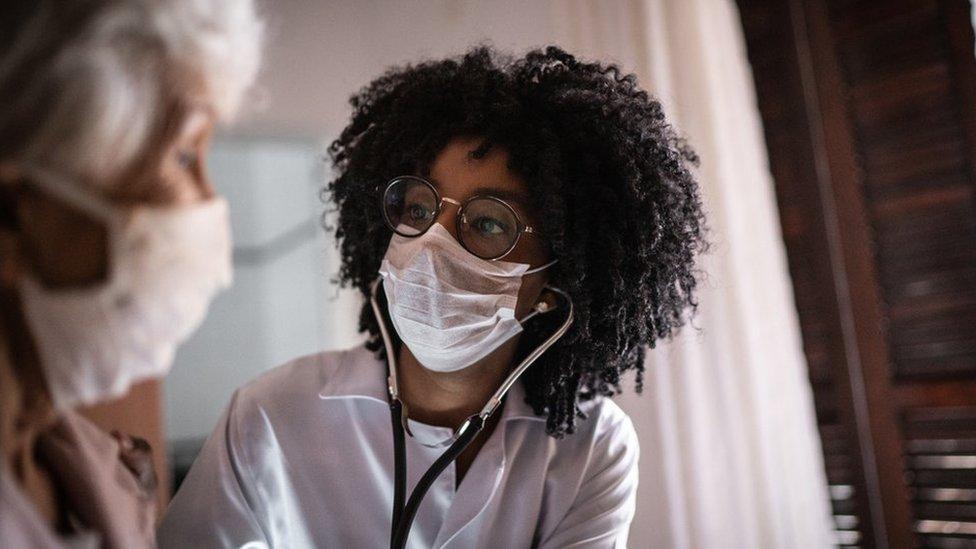
- Published28 January 2021
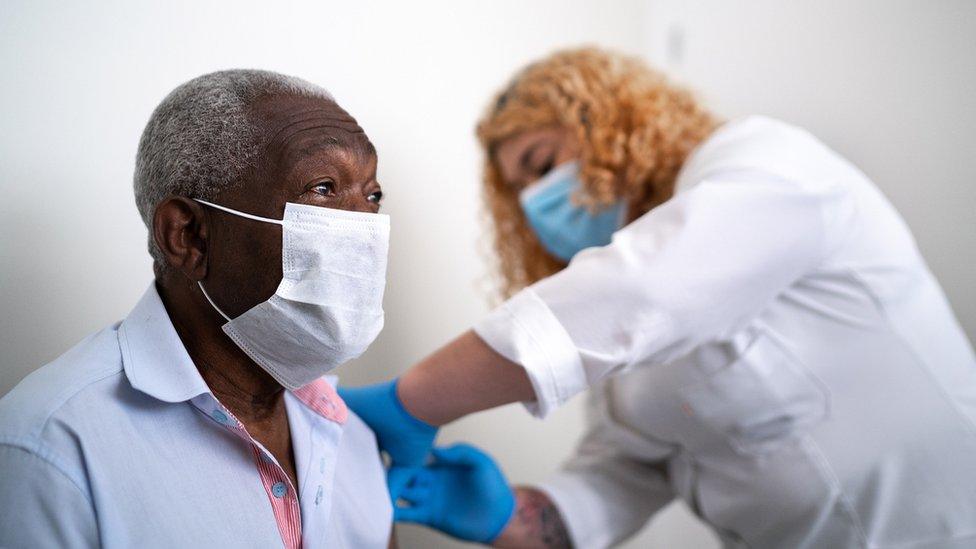
- Published26 January 2021
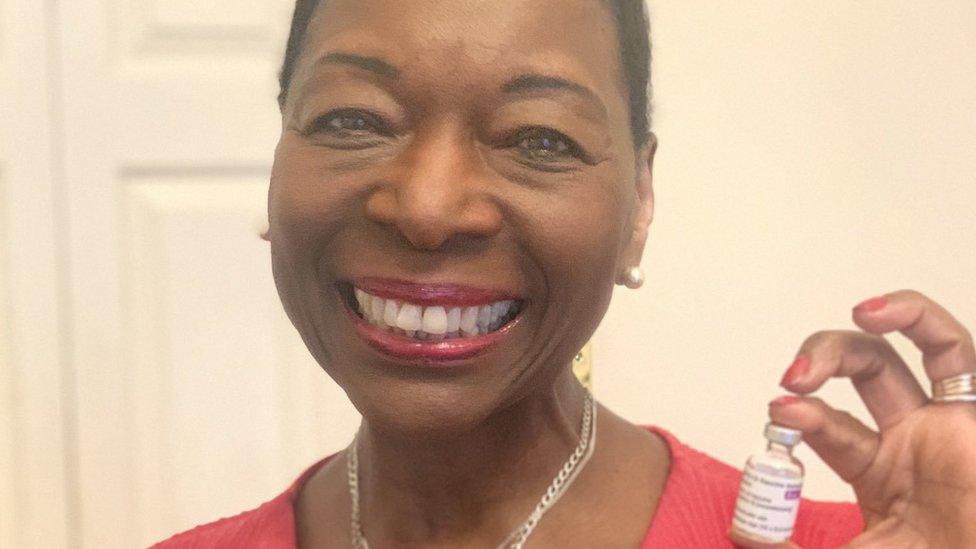
- Published26 January 2021
